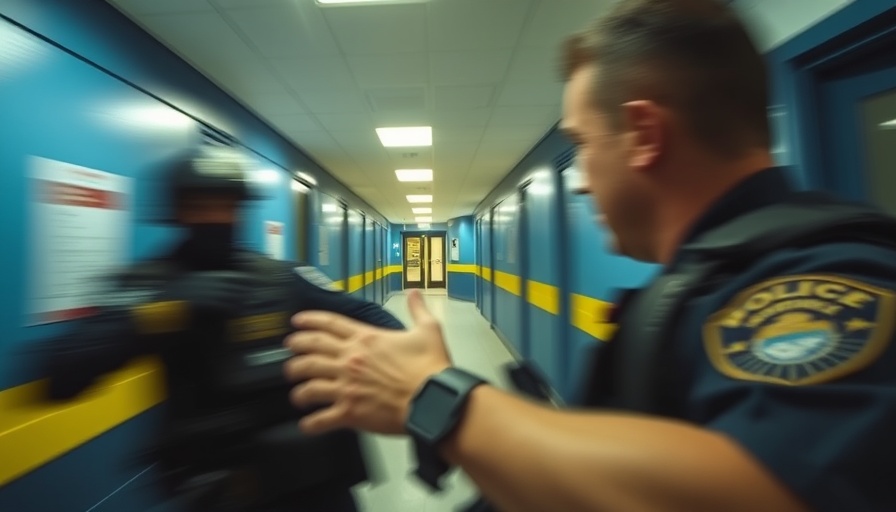
The Shocking Encounter Behind Body Camera Footage
In an alarming incident that underscores the dangers faced by law enforcement officers, body camera footage from a Clark County deputy has revealed the chilling moments leading up to the fatal stabbing of a DUI suspect. This case, involving 54-year-old Marc Fogle from Clackamas, Oregon, serves as a stark reminder of the unpredictable nature of police interactions, particularly when under the influence of alcohol.
The Context: Understanding Officer Safety and Community Interaction
On May 7, deputies responded to a crash involving Fogle, who was evidently intoxicated. The deputy’s footage captured Fogle expressing despair and making a harrowing statement: "My life’s (expletive) over." This desperate emotional state is common among individuals in similar situations, showcasing the complexities that law enforcement officers navigate every day. Although Fogle later attempted to grab the deputy's weapon, the incident quickly escalated, resulting in a tragic outcome.
The Role of Body Cameras in Modern Policing
This incident exemplifies the critical importance of body cameras in policing, a technology that many in law enforcement advocate for. Body camera footage has not only enhanced transparency but also provided vital evidence during investigations, ultimately contributing to accountability. As supported by numerous studies, these devices can help bridge the gap between police officers and the communities they serve, especially when interactions go awry.
Implications for Law Enforcement Training
The desperate circumstances of this incident call for a reevaluation of police training programs. How can we better prepare officers to handle volatile situations with individuals under the influence? Incorporating de-escalation techniques, mental health training, and crisis intervention strategies could drastically reduce the likelihood of such fatal encounters. The need for law enforcement leaders to reassess training protocols is more pressing than ever, especially given the public scrutiny surrounding police interactions.
Future Trends in Officer-Involved Incidents
Predictably, this incident may spark discussions about police reform and the safety of officers responding to unpredictable situations. As legislation evolves, expect a trend toward more stringent training requirements and enhanced support for officers facing similar crises. The priority must be not just on officer safety, but also on how their actions are perceived within their communities—a delicate balance that is increasingly crucial in today's sociopolitical climate.
Emotional Perspectives: Community Health and Officer Wellness
While Margo's tragic fate shakes the community, it also highlights another critical issue: officer wellness. The stressors that law enforcement professionals encounter can lead to severe psychological repercussions. There is an urgent need for support systems that address mental health, stress management, and officer wellness, ensuring that they are equipped not only for physical confrontations but also for the emotional toll their job demands.
Conclusion: Embracing Change and Looking Forward
The critical insights from this incident serve as a pivotal reminder for police departments and policymakers alike. As communities call for accountability and transparency, it's vital to develop innovative training programs and support systems that cater to the needs of both officers and the communities they serve. This report highlights not just the implications of body camera technology, but the overarching need for a collaborative relationship between law enforcement and the citizens they protect. As we move forward, let’s ensure that the lessons learned from incidents like these guide future practices and policies in ensuring public safety.
 Add Row
Add Row  Add
Add 

 Add Element
Add Element 




Write A Comment